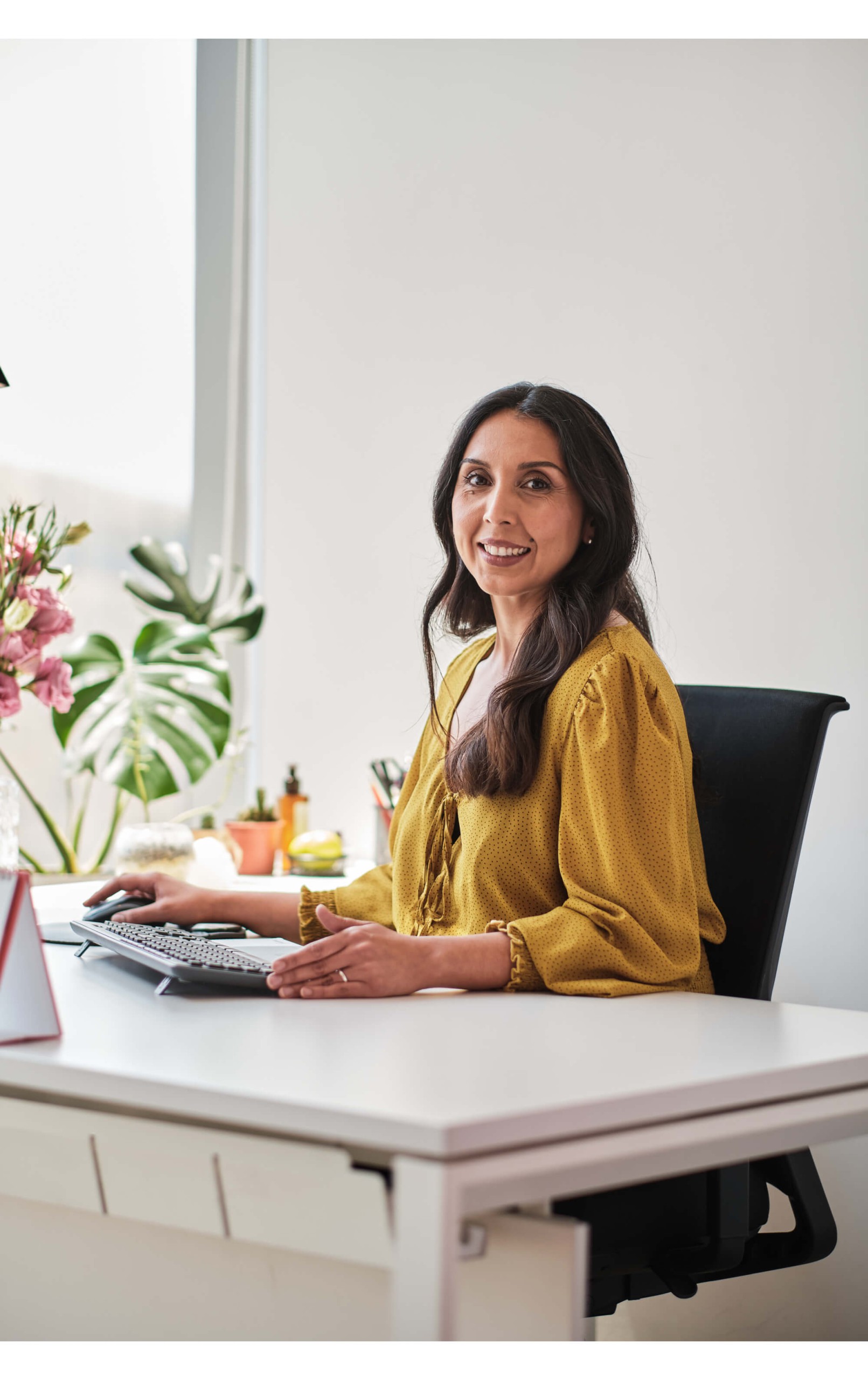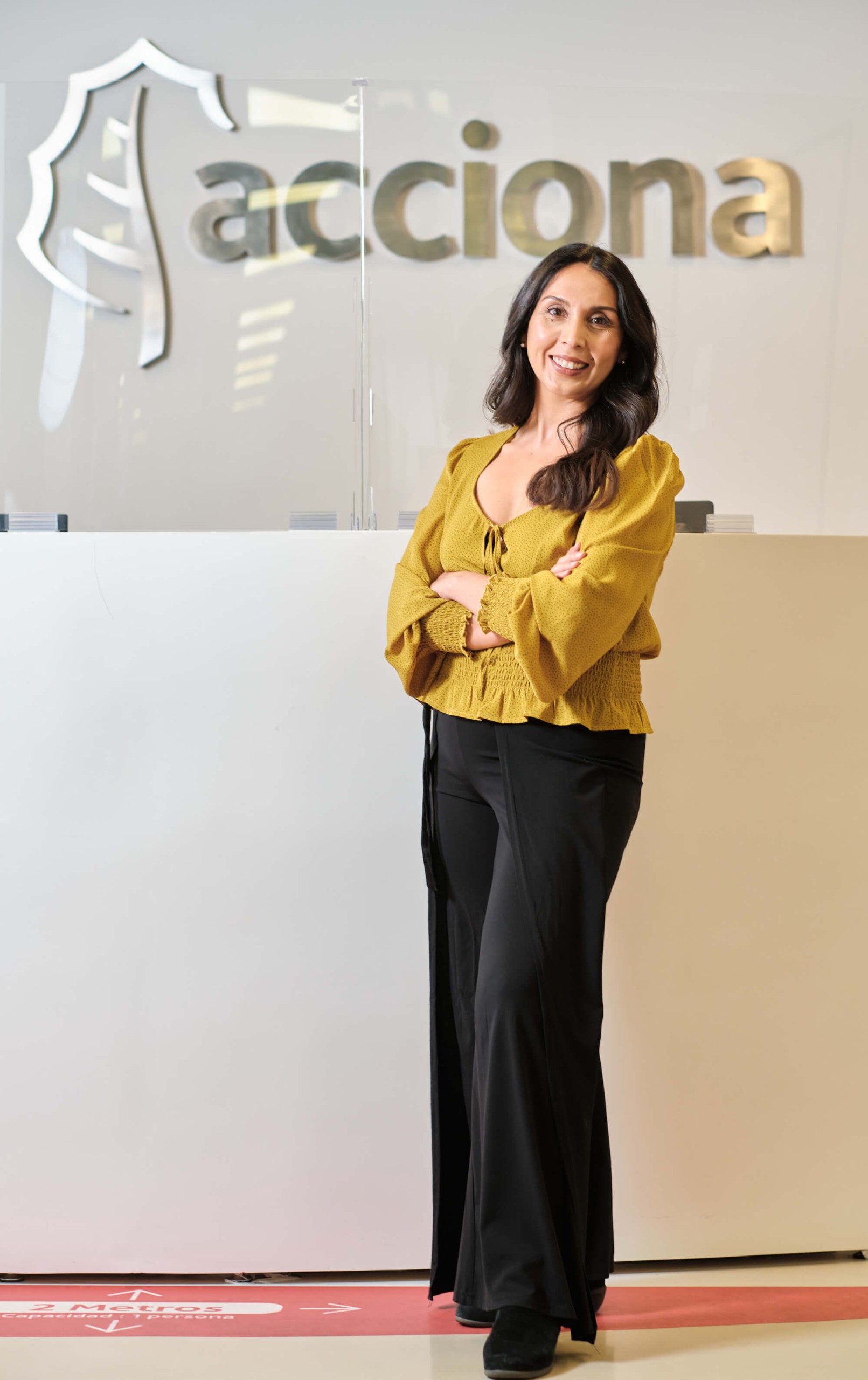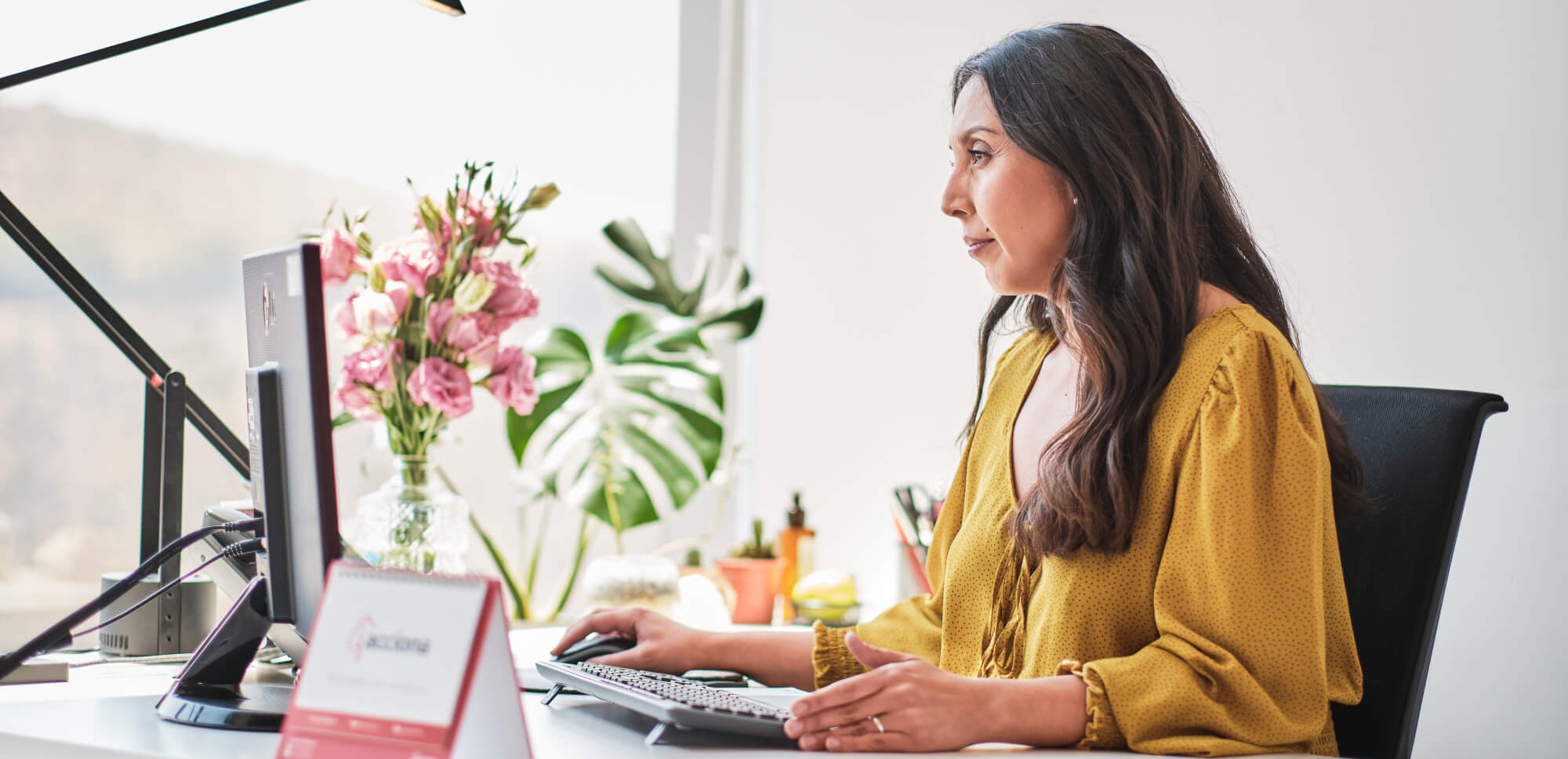Biodiversity is one of the most reliable indicators of an ecosystem’s resilience. Not only in the natural world, but also in agriculture. A report from the FAO recently warned that, in a country like Thailand, the varieties of rice farmed had fallen from 16,000 to barely 30 in recent years. This signifies a greater vulnerability to plagues, disease and climate change.
In this respect, companies have much to learn from the richness of ecosystems. Both in their relationship to them in terms of embracing sustainable practices – and copying the principles of diversity into their own organigrams. Rosa Soto knows a lot about this. Biologist by profession, she is also one of the great ambassadors for female talent and diversity in ACCIONA and Sustainability Director of ACCIONA Energía. So let’s tell her story.
From the forests of Chilean Patagonia to the hills that are home to wind turbines
Back in 2013, Rosa Soto had just taken up the post of head of environmental and social impact management at ACCIONA’s first wind farm in Chile. But this was not her only ground-breaking move: Rosa also became the only woman among more than 160 employees. Indeed, with her arrival, they needed to install a fully-equipped women’s rest room since she virtually had to live on site. Back then, female presence was a question that particularly affected this sector. “Less than 10% of women worked in the world of construction and very few in the energy sector,” she remembers.
“Less than 10% of women worked in the world of construction and very few in the energy sector.”
Rosa also came from a very different background to energy infrastructure. She had researched the rich botany of forests in Chilean Patagonia and worked on diverse conservation projects for endangered species in northern Chile. Soon she would get to know this new world of construction and energy in detail – and contribute to its transformation.
It was a triple challenge: a new sector, a pioneering project since wind power was in its first throes of development in Chile, and her unprecedented experience as a woman. It came out well and Rosa had the opportunity to progress, something she has never failed to do in her 10 years as a professional with ACCIONA. ”In no time, we began to grow. They offered me the chance to establish an area that is very important to the organization: QSE. Quality, prevention, environmental and social impact management.” And not only in Chile, since before long she was extending this discipline to the rest of South America.

Back in 2013, Rosa Soto had just taken up the post of head of environmental and social impact management at ACCIONA’s first wind farm in Chile. But this was not her only ground-breaking move: Rosa also became the only woman among more than 160 employees. Indeed, with her arrival, they needed to install a fully-equipped women’s rest room since she virtually had to live on site. Back then, female presence was a question that particularly affected this sector. “Less than 10% of women worked in the world of construction and very few in the energy sector,” she remembers.
“Less than 10% of women worked in the world of construction and very few in the energy sector.”
Rosa also came from a very different background to energy infrastructure. She had researched the rich botany of forests in Chilean Patagonia and worked on diverse conservation projects for endangered species in northern Chile. Soon she would get to know this new world of construction and energy in detail – and contribute to its transformation.
It was a triple challenge: a new sector, a pioneering project since wind power was in its first throes of development in Chile, and her unprecedented experience as a woman. It came out well and Rosa had the opportunity to progress, something she has never failed to do in her 10 years as a professional with ACCIONA. ”In no time, we began to grow. They offered me the chance to establish an area that is very important to the organization: QSE. Quality, prevention, environmental and social impact management.” And not only in Chile, since before long she was extending this discipline to the rest of South America.
Back in 2013, Rosa Soto had just taken up the post of head of environmental and social impact management at ACCIONA’s first wind farm in Chile. But this was not her only ground-breaking move: Rosa also became the only woman among more than 160 employees. Indeed, with her arrival, they needed to install a fully-equipped women’s rest room since she virtually had to live on site. Back then, female presence was a question that particularly affected this sector. “Less than 10% of women worked in the world of construction and very few in the energy sector,” she remembers.
“Less than 10% of women worked in the world of construction and very few in the energy sector.”
Rosa also came from a very different background to energy infrastructure. She had researched the rich botany of forests in Chilean Patagonia and worked on diverse conservation projects for endangered species in northern Chile. Soon she would get to know this new world of construction and energy in detail – and contribute to its transformation.
It was a triple challenge: a new sector, a pioneering project since wind power was in its first throes of development in Chile, and her unprecedented experience as a woman. It came out well and Rosa had the opportunity to progress, something she has never failed to do in her 10 years as a professional with ACCIONA. ”In no time, we began to grow. They offered me the chance to establish an area that is very important to the organization: QSE. Quality, prevention, environmental and social impact management.” And not only in Chile, since before long she was extending this discipline to the rest of South America.

Curiosity is fundamental for another question Rosa touches upon. “I totally recommend moving between areas, because it gives you an overall knowledge of the business as well as of something super-specific. There’s a wealth of work experience (to be had) with people with super-distinct specialties, which I believe is one of the fascinating experiences in this Company.” And her own experience summarizes this to perfection: her work areas to date have included from communication and marketing to an apprenticeship in engineering development and the obtainment of environmental permits.
Return to her roots
In the context of establishing a corporate culture, as Rosa mentions, areas that previously came under Corporate Social Responsibility have acquired their own identity. As such, three years ago a department of Diversity and Inclusion was created.
Meanwhile, Rosa has taken up a new challenge which well illustrates the possibilities for growth and learning that she has enjoyed over the past decade with ACCIONA. She has to some degree returned to practising as the biologist who, before the age of 30, began leading projects at the multinational that had just landed in Chile.
“In ACCIONA Energía, we have basically migrated from more or less an 18% female presence locally to 35% last year.”
Her new adventure is as ACCIONA’s Sustainability Director. Within this area, one of her main aims will be contributing to biodiversity conservation, one of the three planetary crises alongside climate change and pollution, she says.
To go back to what we were saying, and to conclude, the wealth and resilience that diversity contributes to an ecosystem can also be used to refer to a company. Diversity and sustainability are intimately linked and who better than a biologist, expert in ecosystems, to explain it in terms of what the presence of women signifies:
“We are not talking about who is better, it’s that we are different; having two visions is better than having one. It’s the possibility of taking better decisions by knowing more. In the end, we are 50% of the world population and this should not be forgotten. Basically, if you don’t think of including women, what you’re doing is losing 50% of the world’s vision.”
At ACCIONA we need the best professionals on our team, people who choose to invest their talent in generating a positive impact on the planet. Want to sign up for this commitment? See our job offers here.


